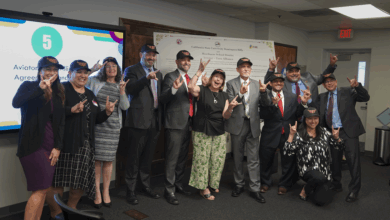
The Great Resignation–which has seen millions of workers quit or change jobs since the start of 2021–has set the stage for a surge of new entrepreneurs. However, as startups have an average survival rate of only 20 percent, they are highly risky. Mistakes are costly and common, especially among the inexperienced.
To help early-stage ventures avoid these pitfalls, CSUDH Adjunct Professor of Marketing Allan Colman wrote The Revenue Accelerator: The 21 Boosters to Launch Your Startup, published in August 2022 by Made for Success and Blackstone Publishing. Drawing on interviews with dozens of start-up entrepreneurs and business leaders, plus decades of his own business development experience, Colman provides an essential companion guide for entrepreneurs looking to make the leap from building their product to selling it–and shares some key lessons here.
You mention a potential surge of entrepreneurs in the U.S. What are some shifts we’ve started to see already?
First of all, there’s the Great Quit, as I call it. A significant amount of people who have left their jobs will be looking to start their own business. On top of that, there is a huge increase in people aged 55 and older who have already retired, or will soon be retiring–many of them may pursue entrepreneurship to earn extra income. Lastly, since the COVID-19 pandemic, there has been a big drop in the number of women in the workforce. We’re seeing new entrepreneurs from each of these groups.
In your opinion, why do start-ups struggle to survive?
The experts I interviewed were unanimous: the biggest problem they see is entrepreneurs not researching whether there’s a market for their product or service. If they don’t look at the market before they start, they’re already really behind.
Once a new entrepreneur knows there’s a market need for their product or service, they need to find out where they can get free assistance–from development centers, the U.S. Small Business Administration, and community college programs. There is a huge amount of free and low-cost advice for startups.
Did you know? CSUDH’s Innovation Incubator offers a variety of free and fee-based programs and courses for students and community members looking to start or grow their business.
From interviews with entrepreneurs you conducted for the book, you developed 21 accelerators. What are your essential tips for how to sell a product or service?
The biggest thing is listening. By not listening and just thinking about what you want to say, you miss opportunities to gather important information. In asking good questions, you find out what people’s needs are and how you can meet them. You convert their needs to your values.
The second thing is trust. Trust builds sales. It drives expectations, successful delivery, repeat sales, and referrals. One example of how to do this is by immediately dealing with customer dissatisfaction. Acknowledging it and fixing it quickly can lead to a higher level of trust. Once a problem has been fixed, and fixed quickly, occasionally remind your customer you did so.”¯It’s another form of invisible marketing.”¯
Third is developing your Unique Selling Proposition (USP). What do you have to offer that people can’t get anywhere else? Ask peers, prospects, friends and family to weigh in. Your USP should be the core message for all your marketing and sales efforts.
Fourth is always building relationships. Where do you have people that you’re meeting on a regular basis? Maximize your networks. Do you belong to a Chamber of Commerce, a PTA, or the YMCA? Let people know what you’re doing. It’s a perfect opportunity and costs you nothing.
Colman is a speaker, author, and CEO of the Closers Group, a business development advisory. He teaches Principles of Marketing (MKT 350) and Marketing Management (MKT 459) at CSUDH.









